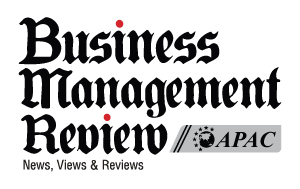Thank you for Subscribing to Business Management Review Weekly Brief
I agree We use cookies on this website to enhance your user experience. By clicking any link on this page you are giving your consent for us to set cookies. More info
Strategic Imperatives in Europe's Executive Search Landscape
The European executive search industry is experiencing a significant transformation in 2025, driven by technological advancements, evolving leadership models, and innovative talent acquisition strategies.
By
Business Management Review | Friday, December 12, 2025
The European executive search industry is experiencing a significant transformation in 2025, driven by technological advancements, evolving leadership models, and innovative talent acquisition strategies. As markets expand and specialised sectors such as biotechnology demand technical and non-technical expertise, executive search firms are enhancing their methodologies to identify leaders capable of navigating digital transformation, driving sustainable growth, and cultivating inclusive, agile organisations.
Market Growth and Economic Drivers
The executive search market in Europe is poised for steady growth. Projections indicate annual revenue of approximately £1.8 billion by 2025, reflecting a compound annual growth rate (CAGR) of 2.4 per cent. This sustained performance underscores the increasing demand for experienced leadership, particularly as industries adapt to digital advancements and evolving regulatory landscapes.
Stay ahead of the industry with exclusive feature stories on the top companies, expert insights and the latest news delivered straight to your inbox. Subscribe today.
Key factors driving this growth include the impact of mergers and acquisitions (M&A), which have reshaped leadership requirements by necessitating executives capable of overseeing transformational restructuring. Additionally, the growing emphasis on digital transformation has heightened the demand for leaders adept at leveraging digital tools and cloud-based technologies to optimise talent management. Furthermore, as European regulatory frameworks continue to evolve, organisations prioritise executives with a global outlook and advanced compliance expertise to navigate complex regulatory environments effectively.
Emerging Trends in Executive Search
The landscape of executive recruitment has shifted towards transformational leadership, where modern executives are required to balance ambitious long-term visions with effective execution. This evolving leadership paradigm is built on three fundamental pillars. First, visionary decision-making is now a key metric for evaluating leaders, emphasising their ability to set ambitious goals and precision in aligning them with corporate strategy. Second, empathy and adaptability have become crucial as leadership moves beyond traditional hierarchies to embrace inclusive styles that prioritize employee engagement and cultural sensitivity. Lastly, a global mindset is essential, with leaders expected to navigate multinational operations, respond to geopolitical shifts, and integrate diverse cultural practices into their strategic frameworks. These attributes are central to industry evaluations and are reshaping executive search criteria.
Simultaneously, the integration of technology in executive recruitment has redefined talent identification and selection processes. AI-driven screening enhances applicant tracking and candidate matching, introducing efficiency and objectivity. Cloud-based platforms facilitate real-time consolidation of candidate data, interview assessments, and market intelligence, enabling agile decision-making. Additionally, predictive analytics plays a crucial role in forecasting leadership potential and career trajectories, refining the executive selection process.
Beyond technological advancements, executive search firms have embraced data-driven and collaborative strategies to refine leadership development. Strengthening educational partnerships with universities, think tanks, and professional bodies ensures that curricula align with evolving leadership demands. Meanwhile, organizations are investing in upskilling and reskilling programs to equip executives with the latest technological and managerial expertise. Furthermore, a strong emphasis on employer branding—highlighting corporate mission and sustainability practices—has enhanced the appeal of leadership positions, fostering a new generation of visionary executives.
As firms navigate evolving market conditions, several strategic imperatives have emerged in executive search. A key priority is focusing on high-growth industries, where firms intentionally target sectors with strong growth trajectories and innovation potential. Notably, biotechnology and life sciences continue to drive demand for highly specialised leadership, while the green technology and sustainability sectors require executives with expertise in renewable energy and circular economies. Additionally, advanced manufacturing, shaped by automation and digitisation, increasingly seeks leaders adept at managing supply chain complexities and ensuring operational resilience.
Another critical factor in modern executive search is data integration and analytics. Organizations are leveraging advanced technologies to build comprehensive candidate profiles, enhancing recruitment decision-making. Predictive analytics enables firms to forecast leadership potential based on historical data, improving candidate screening and selection. Behavioural assessment tools evaluate cultural fit and decision-making competencies, ensuring alignment with corporate values. Furthermore, real-time market intelligence offers dynamic insights into talent availability, allowing firms to respond swiftly to evolving market demands.
Diversity and inclusion remain fundamental to long-term business success, fostering innovation and resilience. Executive search strategies now emphasise promoting gender parity and cultural diversity, sourcing candidates from varied academic and professional backgrounds, and encouraging a blend of experiences to enhance problem-solving capabilities. Organisations can cultivate forward-thinking executive teams to navigate complex global challenges by prioritising inclusive leadership.
Future Outlook
Hybrid leadership models will gain prominence as remote work and digital operations become standard practice, necessitating leaders who can effectively manage virtual and on-site teams. Ethical AI integration will play a critical role in ensuring transparency and objectivity in candidate selection, reinforcing fairness in recruitment processes. Meanwhile, the agility of talent ecosystems will determine competitive success, as organizations increasingly require leadership solutions that can be deployed rapidly in response to shifting market conditions.
By 2025, Europe’s executive search landscape is set for robust growth and transformative change. Firms that integrate advanced technologies, foster collaborative leadership practices, and prioritize qualities such as vision, empathy, and a global mindset will be best positioned for success. Both established and emerging markets across Europe will continue to shape the evolving talent ecosystem, each contributing unique strengths to the broader landscape. Together, these factors highlight how executive search is evolving beyond traditional recruitment, becoming a critical strategic function essential to maintaining Europe’s competitive edge in the global market.
More in News






